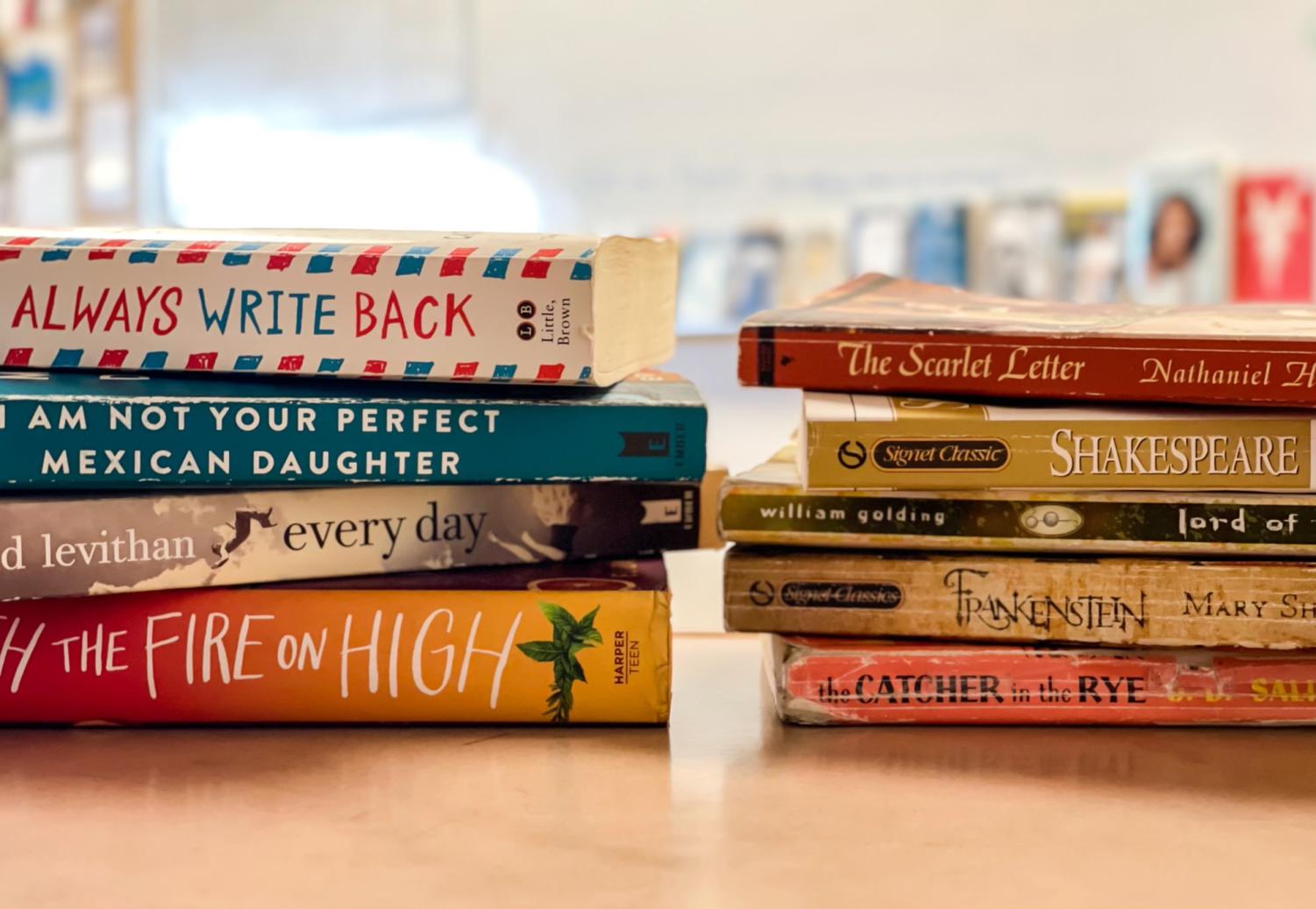The Great Debate: Should modern literature replace the classics in English class?
March 18, 2022
Classics should be replaced with modern literature
Most of us are familiar with the many classic texts required in high school English classes: “The Catcher in the Rye,” “Of Mice and Men,” “Lord of The Flies,” and countless others. As someone who enjoys reading, I try to have a positive attitude about classics. Even so, it’s often difficult to understand the text or find it engaging. I can only imagine how students that don’t like to read feel about, one, being forced to read, and two, having to read something that they’re most likely not going to understand or find relatable in English class.
Noticeably, students are feeling an increasing disconnect to books. Fewer and fewer teens are reading outside the classroom, and it’s correlated with the types of books that are required in school. When assigned classics such as The Great Gatsby or To Kill a Mockingbird, both of which are set in the early to mid-1900s, students often find the text difficult to comprehend as they are written in a language and style that’s much different than what most teens are accustomed to. In addition, most classics are intended for an adult audience, further making it harder for students to comprehend.
These difficulties in classic texts often lead students to take shortcuts, such as using SparkNotes, for their reading assignments. In this case, they are seeking summaries that are written in a modern format, which means they are not truly capturing the essence of the classic writing style. When students are actually interested in a story, they are more likely to complete the reading and participate in class discussions and assignments, therefore learning more from the text.
Many claim that classic novels should remain in high school English curriculums because their lessons are timeless. While this may be true, there are also recent novels that contain the same important themes. Even better, they’ve been adapted to include present-day information that is more relatable to readers.
Some also say that the messages of old novels can be applied to the modern world, but that isn’t what they were intended for. They weren’t written for the future but for the time period during which they were written. Although the main concepts can be adapted to apply to the current day, it’s better to select novels by authors who are living in the same modern society as their readers. Those who understand and have experienced the problems of present-day society.
Classic books are definitely classics for a reason, but compared to the enriching entertainment received from social media and other online platforms, they are boring to high school students. In order to have students learn and engage more thoroughly with assigned texts, English classes should switch to more modern literature.
Reading the classics in English class is important
“My teacher made me read it” is often the mantra following a traditional curriculum of classic literature. Whether it’s because they’re less modern or are perceived negatively due to their classroom presence, few students would choose to read a “classic” book such as “Lord of the Flies” or “Moby Dick” over a contemporary novel.
However, classics have never lost their value, especially to readers, society or the education system. They are classics for a reason.
Classics have withstood time and have resonated with hundreds of thousands and even millions of people. According to a Fortune article on “The Bittersweet Story Behind Harper Lee’s Success,” “To Kill a Mockingbird,” first released in 1960, has sold over 40 million copies and still sells over 750,000 copies yearly.
The quality, relatability and demand of classics is clearly illustrated through their survival through time and decades of change in ideas and culture. People have still embraced them with the same fervor because although written long ago, these books have an element of timelessness.
While a lot of history can be learned through textbooks, we can’t forget that it is also preserved through these stories. Through these books, students can experience life through the eyes of someone living in the past. Reading classics in a modern context allows students to learn, examine and understand an often prejudiced past. The messages and stories depicted in these books have impacted generations of people and should continue to do so into the future.
In the past years, some schools across America have banned books such as “Of Mice and Men” and “The Catcher and The Rye” due to profanity, racial slurs and “X-rated” content. There has been no literary censorship at Algonquin, but some students may go through their high school career having read only a few classics, especially with the pandemic involved.
When purchasing new books, the English department shouldn’t only look at updating their curriculum to make it more contemporary and accessible. They should also continue investing in classic literature like “1984” or “Animal Farm” and should buy enough copies of these books so that all students have the opportunity to read them.
Contemporary novels may be more modern, relatable and comfortable for students, but classics challenge students with viewpoints of individuals from other time periods. This allows students to encounter characters that they may disagree with and provides an outlet—the classroom—for students to digest, praise or criticize those works. Furthermore, classic plays like Shakespeare challenge students to analyze unfamiliar language, literary ideas and writing styles under the guidance of their teachers and peers.
In the past few years, Algonquin has been trying to expand the reading list to include more diverse contemporary novels, but I strongly believe that classics should stay mandatory as well.



